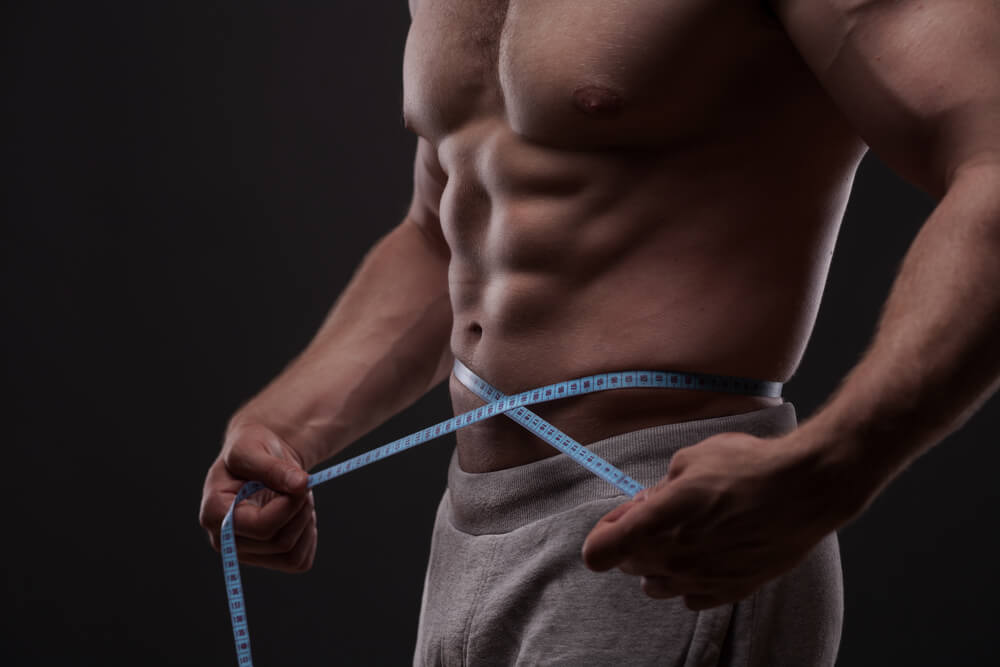
There you are, standing in front of the mirror, looking at yourself. Perhaps you’ve put on a few pounds. Or maybe you know summer is fast approaching and you want to improve your physical appearance before it’s time to remove your shirt for the world to see.
Whatever boat youre in, the best way to do this is diet. Hitting the gym, lifting weights and performing cardio are all important steps. However, the vast majority of weight loss takes place in the kitchen. It’s far easier to scratch off 100 calories from your diet in the kitchen than to burn 100 calories. But here’s the thing with dieting. Anyone can diet for a week or two.
Add in a little willpower and you will drop the weight. What you want is a sustainable lifestyle.
Something that’s possible to maintain for the rest of your life. This is probably the main problem with many diets out there. Simply not sustainable. It’s also why there’s no one magic bullet diet. What works for you and what works for someone else is not always the same.
So lets check out a few of the different diets. Each have potential. You just need to determine what works best for yourself.
Weight Loss Diet For Men: Our Top List of Diets That Work
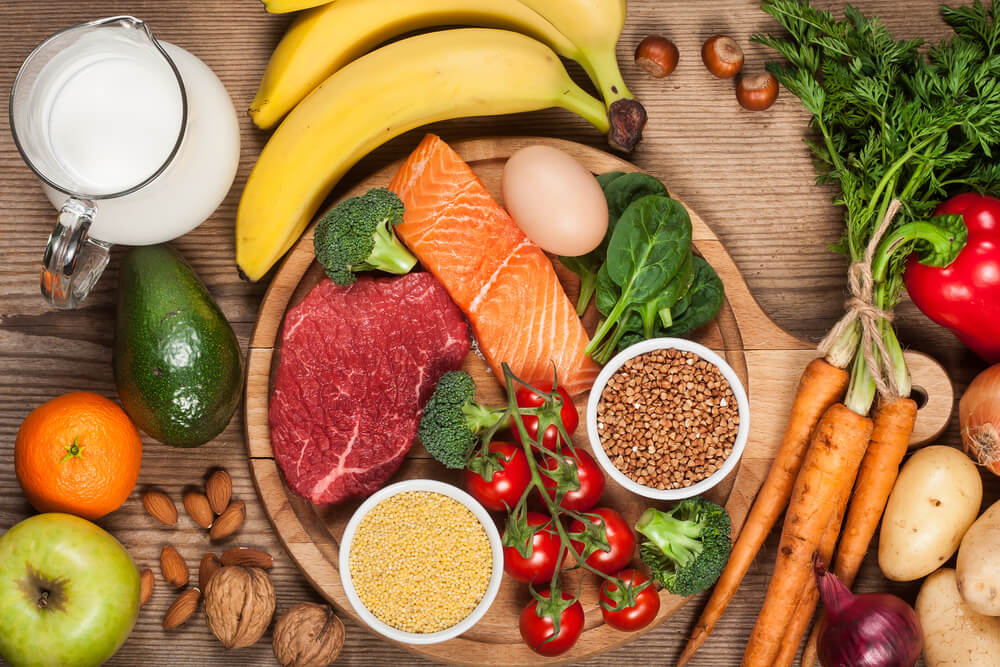
The Lean Protein and Low Carb Diet
There are a few variations to this diet, but we’ll start with the basic one. This diet is pretty straight forward. You want to focus on eating lean proteins, such as turkey, chicken, tuna (most seafood basically) and eat lower carb foods.
This means no pasta, bread, rice and grains. The idea here is carbs and sugar are one in the same (sugar is a simple carb, which can provide quick energy, but also quickly turns into fat when not burned off as an energy source). For the basic lean protein, low carb diet, you can still eat all veggies and fruits. It cuts most fats out of the diet and, if most of your meal is lean protein, you’ll feel fuller, longer, so calorie consumption is less.
This is where many diets fall flat.
The only way you’re going to drop weight is if you burn more calories than you take in. Plain and simple. You can cut out whatever you want, eat one thing or not the other. It’s as simple as that. Most of the “you don’t need to count your calories” diets say this because you’ll consume more protein, which is made up of fewer calories per gram, allowing you to eat more.
You don’t need to necessarily measure out every single thing (who’s got time for that?), but writing what you eat down in a journal, at least initially, will give you an idea as to how many calories you’re consuming.
Our Preference
Alright, so let’s go into a bit of our own personal preference.
We’ll give you some other options as well, because as stated earlier, the same diet doesn’t always work for everyone.
However, we don’t like, to exclude certain food groups. We’ll get into some diets in a bit that can be very successful with certain people, but require you to cut out food groups. That trusty food pyramid lasted for decades and for good reason.
Basically, we like lean protein, low fat diets. We also aren’t anti-carb. For us, carbohydrates is an important energy source for workouts. It’s all about eating the right carbs. You also need carbs if you want to build muscle. Talk to nearly any body builder, and they will tell you they eat carbs because the muscles require carbs for peak performance.
So, for example, for breakfast eat a cup of oatmeal for breakfast, mixed with either skim milk, or a protein drink. That gives you quality carbs and protein, without eating too much (which can make you sleepy).
For lunch, go with a salad, oil vinegarette (nothing creamy as those are filled with fat) and grilled chicken, then for dinner, some kind of fish (like flounder or salmon), brown rice and broccoli. In between meals you can snack on low-fat yogurt, almonds or even string cheese. Basically it’s lean protein, whole grain carbs, and nutrients from veggies.
We’ve found this is the best all around diet for basic dieting purposes.
It isn’t extreme, it doesn’t limit what food groups you can eat, and yet it will work long term.
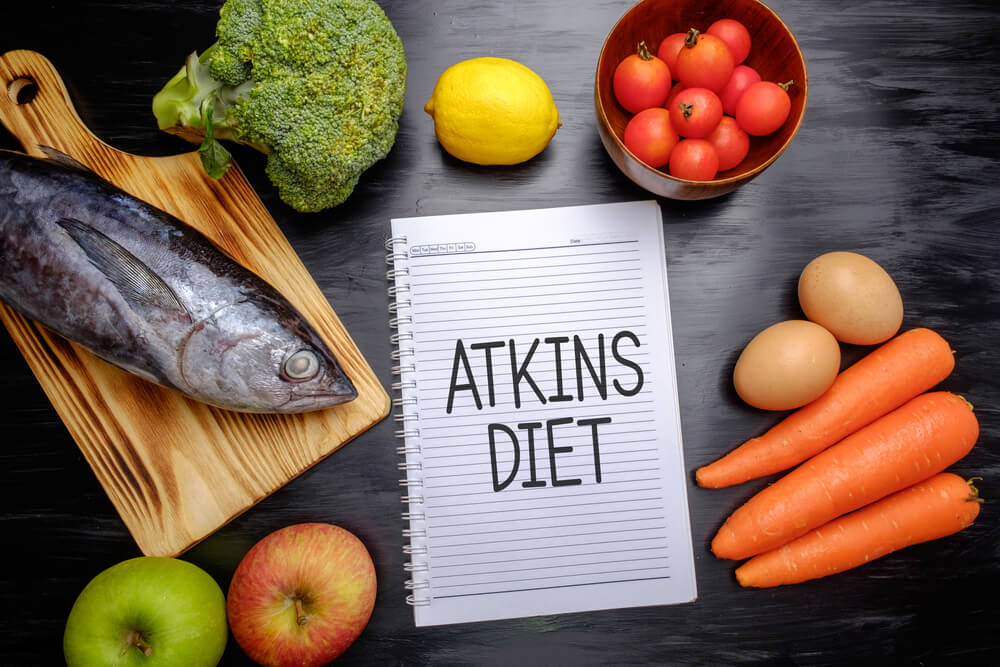
Atkins and Keto
These two diets are not completely the same, but for the purposes of this article will lump them together (and point over the general differences).
This is a high protein, low carb diet to the extreme. Basically, you’ll want to cut out carbs. Period. Atkins is a bit more forgiving for the carbs. When you first start out, it recommends keeping your carb into to under 20 grams per day. That’s especially low. A cup of pineapple is 22 grams. So yeah, it’s low, and it takes getting use to. Instead of carbs, you’ll be eating foods high in fat. Meats and cheeses will become your friend.
The Keto diet takes this to the extreme. You don’t eat any carbs. You focus on remaining as close to zero as possible. This means outside of maybe spinach and other leafy greens, you won’t consume any kind of fruits or veggies. These foods have natural sugar, which is a natural carbohydrate.
So why are these diets effective?
A few reasons. One, you won’t retain as much water.
Ever notice how your belly bloats up after that never ending pasta dish from two days before?
That’s because for every gram of carbs you consume, you’ll need around three to four grams of water.
Some of those pasta dishes can have upwards of 200 grams of carbs. That’s 800 grams of water right there. So ditching the carbs is good for if you’re about to hit the beach.
Additionally, when you kick carbs your body more or less reprograms itself to burn fat instead of carbs.
People who are able to maintain Keto usually have, at the very least, a fit body, thanks to the higher levels of protein and the very little water retention. But you also need to consider your personal health and your family’s health history. If heart and cardiovascular problems run in the family, a diet that relies heavily on fatty foods is not the best way to go. It also makes it challenging to obtain enough fiber (at least with the Keto diet, there are options for the Atkins diet).
A zero carb diet is one that’s difficult to maintain, but for those who do, they usually swear by it.
If you are interested in something like this, focus on the Atkins variation first. Try it out for a few weeks, and if you like it, you can either stick with it, or continue on with Keto.
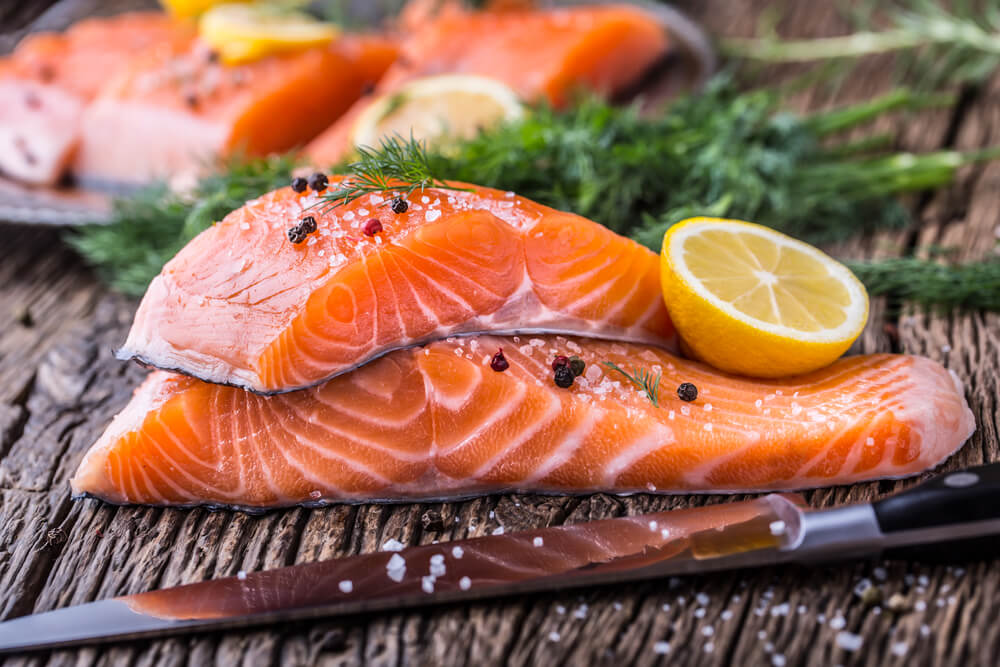
Mediterranean and Nordic Diet
Now, perhaps you still want some boundaries.
You like the idea of a lean protein, low fat, lower calorie diet, but it’s difficult to know what to do and what to buy at the store, so you want guidelines.
Sure thing, we totally get that. This is where diets like the Mediterranean Diet come in. In terms of a structured diet, it’s one of our favorites (as it’s basically a lean protein, low fat and lower calorie diet anyway). If you want to turn heads a bit, we can also suggest the Nordic Diet.
The Mediterranean Diet is based on a traditional diet of people living around the Mediterranean Diet. Very little in way of heart conditions occur in these areas, which is a major reason why it comes highly recommended. It is a primary plant diet, that includes legumes, nuts, vegetables, whole grains and fruits. You’ll ditch the butter with olive oil (which is good as it comes with Omega-3 fatty acids), use herbs instead of salt (again, also good), eat fish, cut down red meat to only a few times a month and add in the occasional glass of red wine.
As is the case with the Mediterranean Diet, the Nordic Diet is based off of foods you’d eat if you lived in Finland, Norway, Denmark or Sweden. It was actually created by a gourmet restaurant, but it’s a pretty solid diet all around, although we will point out this one is something that can become a bit more costly.
With it, you’ll eat whole-grains, like oats, barley and rye, consume berries, mostly root vegetables (carrots, potatoes and cabbage), and eat fish like mackerel and salmon, plus beans and peas. It’s a great diet if heart disease runs in your family. It cuts out all processed foods (which is good), and in terms of actual meat (not fish based), it does include some wild game, but not much in way of red meat.
As you can see, these two diets share many similarities.
The changes are basically with the specific veggies and grains. So you can kind of tinker with what works best for you. Check out some recipes online for further experimenting. Like we said, most people know about the Mediterranean Diet, but not as many have heard of the Nordic Diet. We also kind of like some of the changes the Nordic Diet makes (FYI, if you want to drop weight faster, you’ll want to skip the red wine).
Both are heart healthy diets that focus on fish for protein and ditch the fats. Sure, you’re probably not going to get super buff on these diets, but you will drop the weight and your heart will thank you for ditching the salt (you’ll also obtain the necessary fiber that the Keto diet may leave you, and your digestive system, without).
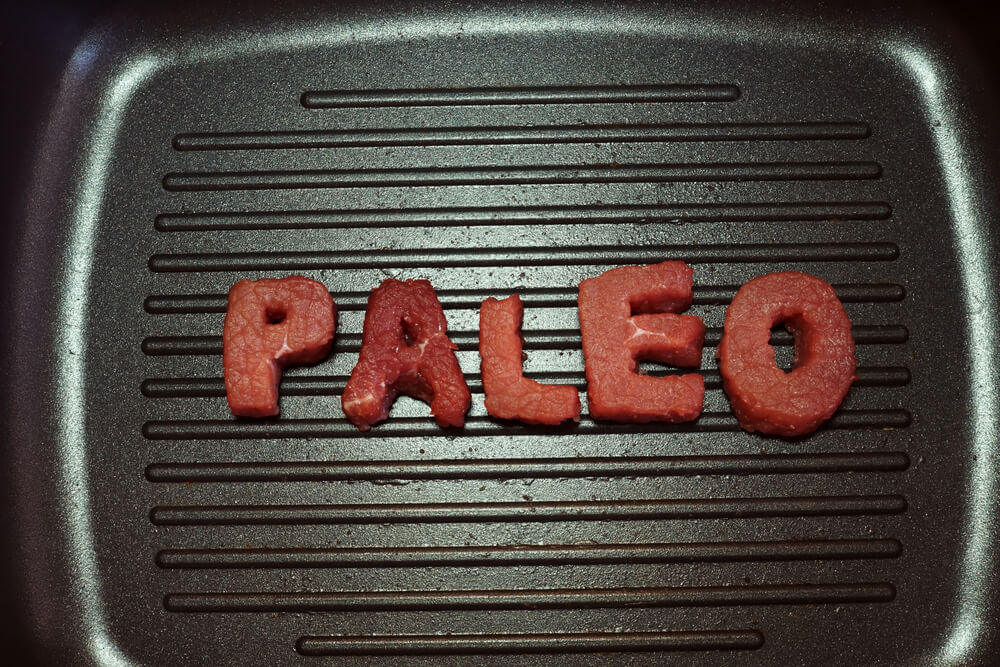
Paleo Diet
We wanted to toss this one in a bit because it does offer ways to drop weight and live a healthy lifestyle.
The idea here is to ditch the processed foods and anything that wasn’t around back when people were hanging out in caves. It focuses on animal proteins and lower carbohydrates. You won’t eat fried foods, salts, cereal grains, beans or any hydrogenated oils. Sugar and most dairy is kicked to the side as well. It’s a bit similar to an Atkins diet, although you’re able to eat smaller amounts of fruits. Farm fresh meats that are organic in nature as also desirable. Cutting out the GMOs is another part of the diet we can get behind.
Like Atkins it does focus on higher fatty foods, so this might not be a desired diet if you have a heart condition.
However, by ditching salt, processed grains, carbs not from veggies and sugar, you will drop weight and yet you’ll also have the ability to build muscle. We prefer some of the other diets, but there are those who have shown results with this diet, so we wanted to at least mention it.
In Conclusion
Dieting doesn’t need to be difficult. If you find yourself starving, the diet you’re on is not working. Sure, there are a few initial changes and it often is a bit challenging up front, but you’ll adapt. We wanted to give you our personal favorites for a weight loss diet for men, but we also understand diet is not one size fits all. Things would be so much easier if that were the case. That’s why we wanted to give you a few different options for ways that have worked for others. There are some who swear by Keto and love how their body looks. Others are not able to maintain that kind of diet.
There are those who really like the Mediterranean Diet or the Paleo Diet.
So consider your personal health background and focus on the kind of goals you want to achieve (do you just want to drop weight or do you want to increase muscle size as well?).
Just remember, dieting isn’t about dropping a few pounds for a few weeks and then reverting back. The best diets allow you to make it a part of your everyday life.
-Terry Asher
Terry Asher
Latest posts by Terry Asher (see all)
- Better Family – Product Review Liquid Daily 2 oz - Dec 16, 2024
- Post-Workout Recovery: The Key to Optimal Performance - Nov 25, 2024
- Pre-Workout Supplements – Everything You Need To Know - Nov 18, 2024











[…] 5, 2018 Facebook Twitter Google+ Pinterest WhatsApp var td_screen_width = window.innerWidth; if ( td_screen_width >= 1140 […]
[…] via- https://gymjunkies.com/weight-loss-diet-for-men/ […]
[…] will have an increase in energy, your heart rate will return to normal, which hinders the kind of weight loss gains you can […]
[…] Weight loss diet for men that. · searching for a weight loss diet for men that actually works? Look no further! Check out our list of the top diets that truly work. […]
[…] Source […]
[…] Source […]
[…] carbs. While there is some basic truth to it weight loss or gain from carbs isn’t what it seems. Weight loss or gain associated from carbohydrates come from water. For every gram of carbohydrates you consume, […]
[…] may be some fundamental fact to it weight reduction or acquire from carbs isn’t what it appears. Weight loss or acquire related from carbohydrates come from water. For each gram of carbohydrates you devour, […]
[…] carbs. While there is some basic truth to it weight loss or gain from carbs isn’t what it seems. Weight loss or gain associated from carbohydrates come from water. For every gram of carbohydrates you consume, […]